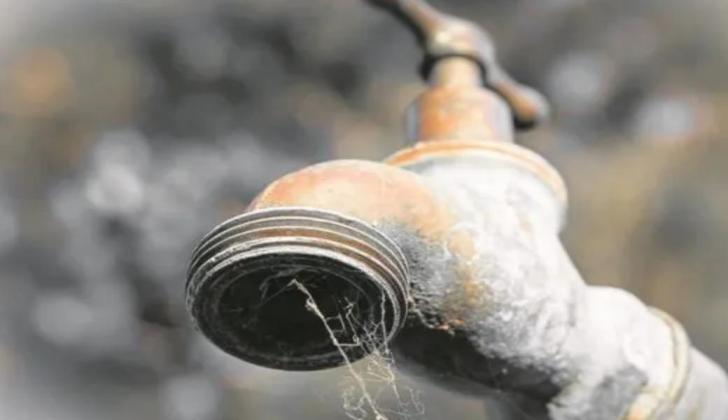News / National
Harare faces severe water crisis
07 Feb 2025 at 06:41hrs |
0 Views

Harare City Council is struggling to meet the water demands of its residents, pumping less than 400 megalitres of water per day against a daily requirement of at least 1,200 megalitres. This significant shortfall is exacerbating the city's ongoing water crisis, with many suburbs going for weeks without reliable water supply. As a result, residents are resorting to unsafe water sources, heightening the risk of disease outbreaks, particularly cholera.
Speaking before a commission of inquiry investigating the operations of Harare City Council from 2017 to the present, acting town clerk Phakamile Mabhena Moyo acknowledged the gravity of the situation. Mabhena Moyo attributed the water shortages to a variety of challenges, including aging equipment and a depressed pumping capacity.
"Our demand is over 800 megalitres per day, but we are pumping around 400 megalitres," Mabhena Moyo told the commission on Wednesday.
The commission was established by President Emmerson Mnangagwa in May 2024 to probe the operations of Harare City Council, with a particular focus on service delivery and municipal management since 2017.
In addition to the limited pumping capacity, Mabhena Moyo highlighted the issue of "non-revenue water," which refers to both physical and commercial losses. According to recent studies, about 60% of the water Harare pumps is classified as non-revenue water. This is caused by a combination of non-functional meters, water theft, and a failure to properly account for the water consumed due to widespread non-payment.
"People are not paying for one reason or another," Mabhena Moyo explained. "Our physical losses are estimated to be around 20% of what we pump."
Reports also indicate that the municipality is struggling to bill some properties, further compounding the financial challenges faced by the city in managing its water supply.
The ongoing water shortages have placed residents at heightened risk of waterborne diseases, particularly cholera, which remains endemic in Harare. Experts believe the water crisis is a significant factor contributing to the recurrence of such outbreaks, as residents turn to contaminated water sources due to the unavailability of clean, potable water.
The water supply crisis continues to challenge Harare's residents and local authorities, highlighting the urgent need for investment in infrastructure and better management of water resources to prevent further public health risks.
Speaking before a commission of inquiry investigating the operations of Harare City Council from 2017 to the present, acting town clerk Phakamile Mabhena Moyo acknowledged the gravity of the situation. Mabhena Moyo attributed the water shortages to a variety of challenges, including aging equipment and a depressed pumping capacity.
"Our demand is over 800 megalitres per day, but we are pumping around 400 megalitres," Mabhena Moyo told the commission on Wednesday.
The commission was established by President Emmerson Mnangagwa in May 2024 to probe the operations of Harare City Council, with a particular focus on service delivery and municipal management since 2017.
"People are not paying for one reason or another," Mabhena Moyo explained. "Our physical losses are estimated to be around 20% of what we pump."
Reports also indicate that the municipality is struggling to bill some properties, further compounding the financial challenges faced by the city in managing its water supply.
The ongoing water shortages have placed residents at heightened risk of waterborne diseases, particularly cholera, which remains endemic in Harare. Experts believe the water crisis is a significant factor contributing to the recurrence of such outbreaks, as residents turn to contaminated water sources due to the unavailability of clean, potable water.
The water supply crisis continues to challenge Harare's residents and local authorities, highlighting the urgent need for investment in infrastructure and better management of water resources to prevent further public health risks.
Source - newsday
Join the discussion
Loading comments…





























